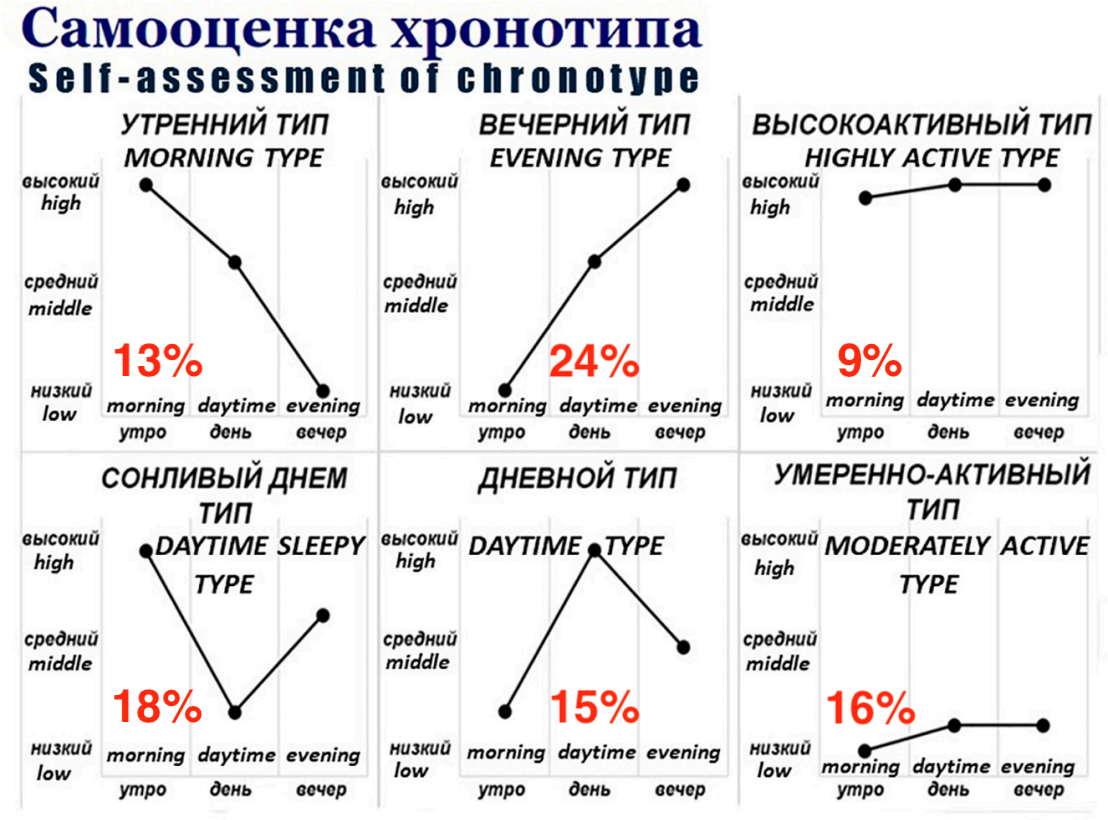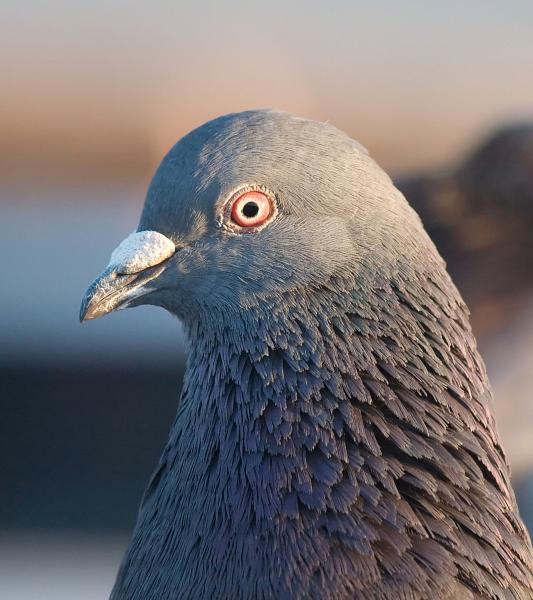The early bird gets the worm. Early to bed and early to rise, makes a man healthy, wealthy, and wise. There are plenty of platitudes that justify the widespread belief that getting up early is the best way to start the day.
Nonsense, says an increasing body of research. Human beings have different chronotypes, i.e., natural tendencies to be awake or asleep at various times throughout the day. We often speak of "morning people"/"early birds" and "night owls," but a new paper written mostly by Russian researchers demonstrates that six different chronotypes exist.
The authors recruited primarily college students (most of whom were also women) for their study. The volunteers were then asked to self-assess their chronotype based on six charts, shown below. The charts depict how energetic a person feels throughout the day (morning, daytime, evening). The percentages (in red) represent the proportion of respondents who chose that chronotype.

As shown, only 13% of people would fall under the category of "early birds." Nearly twice as many are classical "night owls" (24%). The vast majority, however, belong to different chronotypes entirely.
For instance, 9% are "highly active," meaning that they're energetic no matter what time of the day it is. On the flip side, about 16% are lethargic all day, but the researchers thought that a word like that was too mean, so they used "moderately active" instead. Another 18% are those who are energetic in the morning but need an afternoon nap, while 15% feel lousy in the morning but are active in the afternoon.
Adding up all the people who are active in the morning (i.e., morning type, highly active type, and daytime sleepy type) yields 40%. If the results are applicable to the entire population, that means a minority of people dictate our entire social and professional lives. Many people are not energetic in the morning, yet work begins at 9 a.m. (or even earlier). Particularly irritating is when you go to a professional conference, and some important breakfast meeting begins at 7 a.m. Seriously, people?
Limitations and Conclusions
There are, of course, limitations to the study. The biggest is that the volunteers were mostly college students. Almost by definition, college students stay up all night studying or partying and sleep in. So, it's likely that the "night owl" percentage is inflated and the "morning person" percentage is too low. Another limitation is that students were asked to self-assess. It's always better to have a professional make an assessment.
Still, the paper clearly debunks the notion that chronotype is a binary choice between "morning people" and "night owls." And it shows that a substantial number of people, if not an outright majority, are not energetic in the morning. The fact that more people are working from home should come as comfort to those of us who think and feel best in the afternoons and evenings. Finally, our work can be aligned with our natural biological rhythms.
Source: Arcady A. Putilov et al. "Single-Item Chronotyping (SIC), a method to self-assess diurnal types by using 6 simple charts." Personality and Individual Differences 168. Published online: 28-August-2020. DOI: 10.1016/j.paid.2020.110353




